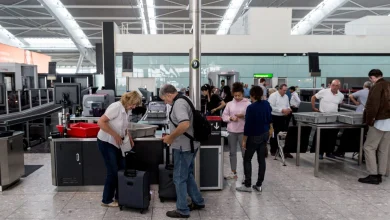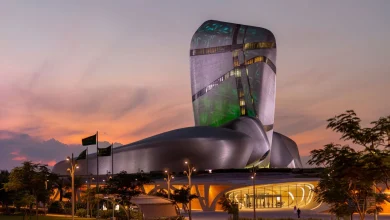
November Inflation in Saudi Arabia Remains Unchanged at 2%
Saudi Arabia shines as a beacon of economic stability while other nations battle persistent inflation challenges. The Kingdom managed to keep its inflation rate at 2% in November and showed remarkable economic strength despite global market volatility. Saudi Arabia’s monetary policies and economic reforms have proven highly effective. These policies are the foundations of the country’s success as a model of fiscal management in the Middle East region. The steady inflation rate continues to affect many parts of the Saudi economy. Consumer goods and housing prices remain well-balanced, which creates an environment where businesses and residents thrive together.
Housing Market Impact
Saudi Arabia’s housing sector stands out as the most important driver of current inflation rates. Rental costs continue to change the market. Housing rents increased by 10.8% year-on-year in November, while apartment rental prices rose by 12.5%. The housing sector makes up 25.5% of the overall inflation calculation, which shows its substantial impact.
Vision 2030 initiatives and major investments fuel the Kingdom’s real estate market’s resilient growth. The government has allocated AED 4.77 trillion to real estate, infrastructure, and transportation sectors. Their ambitious plan aims to build over one million new homes by 2030, and they have completed about 4% of this target.
Saudi Arabia’s real estate sector shows promising indicators:
- Two-bedroom apartments in Riyadh yield 9.1% returns
- Jeddah’s two-bedroom units deliver higher returns at 11.7%
- Riyadh recorded over 58,000 residential and commercial rental deals worth more than SR900 million
Population growth strengthens the market’s momentum. The Kingdom expects its population to grow from 32.2 million to 37.7 million by 2030. Government programs to boost real estate development, combined with this demographic shift, have sparked unprecedented growth in residential areas. Major cities like Riyadh and Jeddah showcase the housing market’s strength through high transaction volumes and rising prices.
Sector-Specific Price Trends
New data shows price trends in different sectors of the Saudi economy, giving us a detailed view of the Kingdom’s inflation patterns. Prices in personal goods and services went up by 2.7%. Jewelry, watches, and antiques saw a sharp rise of 23.7%.
Food and beverage prices inched up by 0.3%, while meat and poultry costs rose by 1.9%. The hospitality sector grew steadily at 1.5%, and hotel and furnished apartment services increased by 5.9%.
Some sectors saw their prices fall, which helped keep inflation stable:
- Transportation costs fell by 2.5%
- Furnishing and home equipment prices decreased by 2.9%
- Clothing and footwear prices dropped by 2.3%
Saudi Arabia’s non-oil private sector managed to keep its strong performance. Trade and hospitality led the way with 6.4% growth. Transport and communications followed at 4.8%, while finance and business services grew by 3.8%. These diverse sectors highlight the Kingdom’s economic transformation. The private sector proved particularly resilient with 4.2% growth.
Consumer prices showed subtle changes month-to-month, rising by 0.3% from October to November. These sector-specific trends show how Saudi Arabia’s economic policies work well to keep prices stable while supporting growth in different economic areas.
Economic Policy Success
Saudi Arabia’s economic policy framework has shown remarkable results that indicates price stability](https://baytmagazine.com/index.php/2025-mena-oil-gas-report-investment-opportunities-and-challenges/) despite global challenges. The Kingdom’s proactive measures and policies have helped keep inflation at 2.6% in FY 2023, which is substantially lower than many advanced and developing economies.
These achievements come from several strategic initiatives the government implemented:
- Setting a ceiling on gasoline prices
- Ensuring abundant food stocks
- Strengthening social protection programs
- Enhancing support for basic goods and services
- Developing the non-oil sector
The Saudi Central Bank’s (SAMA) dollar peg is a vital anchor for monetary policy and supports both price and exchange rate stability. This policy framework works well, as inflation rates stay at reasonable levels compared to global counterparts.
The banking sector’s strength adds to these policy achievements. Banks have managed to keep strong capital adequacy ratios above 20%, high profitability, and strong liquidity levels. Credit growth, especially in the corporate sector, continues to show vigor while staying stable.
The government’s fiscal management stands out, and preliminary projections show that inflation will stay at acceptable levels in the medium term. This achievement deserves recognition since global inflation rates reached 8.7% in FY 2022, while Saudi Arabia’s rates remained substantially lower. The IMF expects the Kingdom’s prudent policies to help maintain stable inflation rates, backed by the credibility of the US dollar peg and consistent domestic policies.
Saudi Arabia has proven its economic strength by keeping inflation at just 2%. The Kingdom’s balanced strategy has created stability across its economy. This success is evident in the housing sector, where AED 4.77 trillion in strategic investments support the nation’s development goals.
Different sectors of the economy show varying levels of success, highlighting Saudi Arabia’s effective diversification strategy. The economy remains stable because prices stay consistent in key sectors while others continue to grow. The banking sector’s robust performance shows impressive capital adequacy ratios and healthy credit growth, which adds more stability to the Kingdom’s economy.
Saudi Arabia looks set for continued success. Smart monetary policies and excellent inflation control support this positive outlook. The Kingdom shows how to balance price stability with ambitious growth targets. This approach makes Saudi Arabia a regional leader in economic management and suggests more stability and growth ahead.






